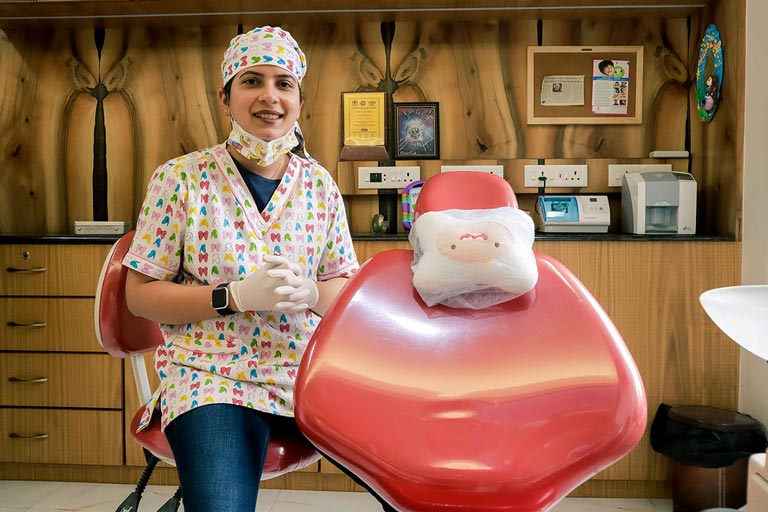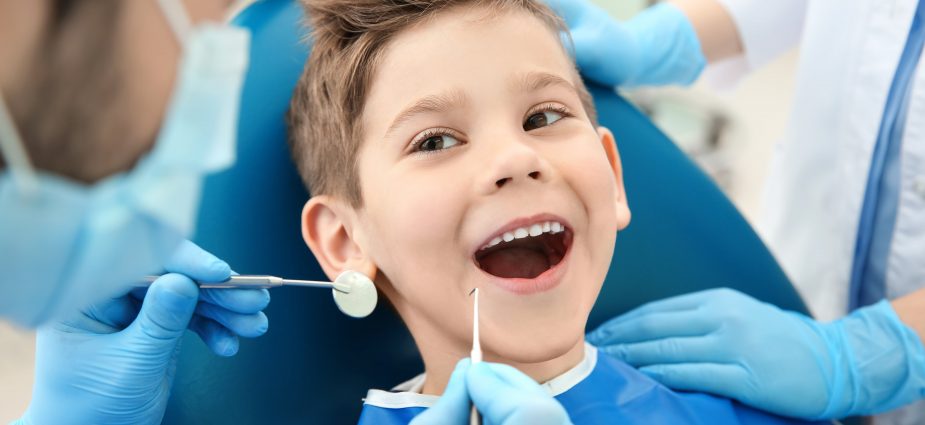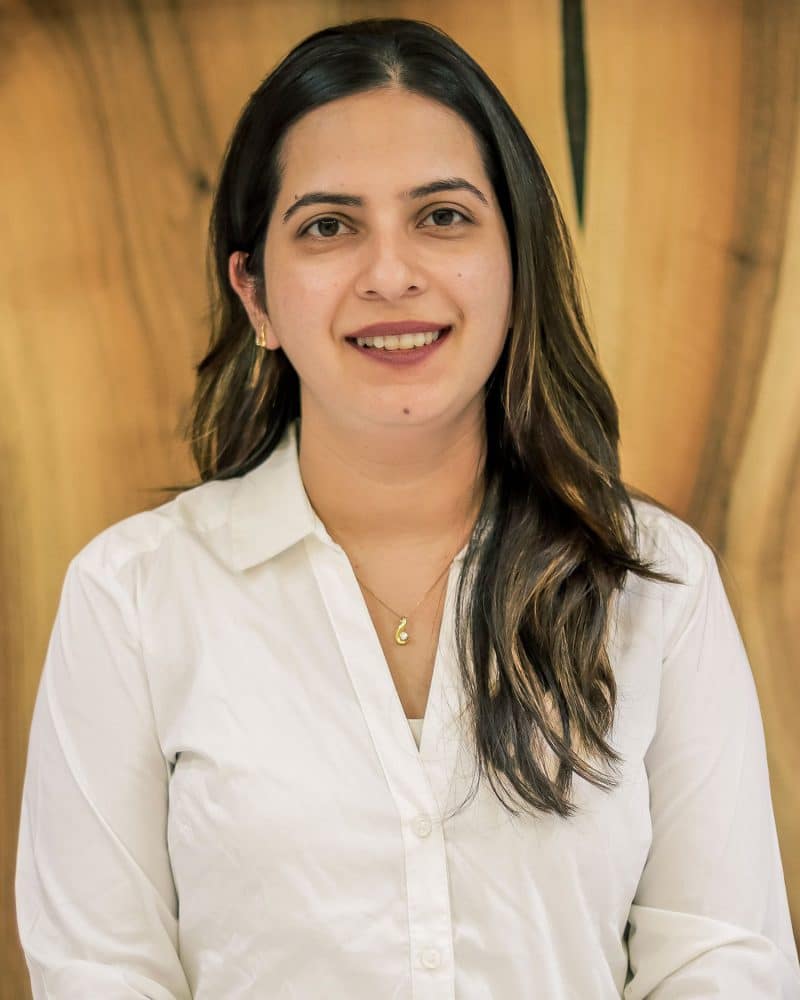Why Do Children Need Dental Fillings?
Dental fillings are restorations placed in the tooth to repair damage caused by decay. They can be made from many different materials, but they all have one thing in common- they protect against further damage due to bacteria and maintain healthy teeth. These fillings are not affected by bacteria and can stay in place for many years.
It’s not uncommon for children to have dental fillings.
The reason why children tend to have more cavities than adults is that the enamel on children’s teeth is thinner and more susceptible to decay than on adult teeth.
When a cavity develops, it has to be treated right away. If left untreated, the bacteria causes decay to spread and infect the rest of the tooth as well as cause further problems. When a child gets a dental filling, it can prevent these complications from happening. Dental fillings, at most times, are painless and can be done without any discomfort.
Should Cavities In Primary Teeth Be Treated?
Children get primary teeth (commonly called “baby teeth”) at around 6 months of age. Their permanent teeth (or “adult teeth”) erupt after the primary teeth fall out. There is a common misconception that since primary teeth are temporary, dental problems with primary teeth are not a big concern. This couldn’t be more wrong.
Primary teeth will indeed fall out, but they are just as important as permanent teeth and require the same care. Here are a few reasons why it is necessary to get cavities in primary teeth treated as soon as possible:
- Cavities can grow quickly:Since primary teeth are thinner than permanent teeth, cavities tend to grow much faster in primary teeth as compared to permanent teeth. It can lead to pain and infection, and would probably require a root canal to be treated. There is also a very high chance that the decay spreads to other teeth. So it is much better to get small cavities treated with a dental filling than risk greater tooth decay and root canal treatment.
- Primary teeth affect permanent teeth: If primary teeth get infected or develop a tooth abscess, it can damage the permanent teeth below the primary teeth. Also, if primary teeth get too damaged and fall out early, then it can lead to unfavorable positions of permanent teeth and similar problems. This might cause the child to require orthodontic treatment in the future.
- There can be problems with chewing and speaking: The pain from cavities can cause chewing to become uncomfortable. This can lead to poor nutrition and cause many health problems for the child. If cavities in the front teeth are left untreated at an early age, they can also lead to problems with speech. If the primary teeth fall out too early, there is a chance it can lead to a long-term speech impediment.
- The child’s smile will be affected: Decayed or missing teeth can negatively impact children’s appearance. They might grow self-conscious and feel awkward while smiling. This will reduce their confidence, and their smiles will become less bright.
Thus, for your child’s present and future health and well-being, get any tooth cavities and other dental problems treated as soon as possible.
What Are The Various Dental Filling Materials Used At Pandit Clinic?
There are many different types of dental fillings available for children today. At Pandit Clinic, kids dentist Dr. Pratibha Kukreja Pandit uses the following filling materials for cavity treatment:
- Glass Ionomer Cement: Glass ionomer cement (also called “cement”) has been used in pediatric dentistry for many years. It adheres closely to the damaged or infected area of the tooth and releases fluoride to strengthen the tooth and kill any bacteria. Thus, glass ionomer cement restores the tooth while preventing the formation of more cavities.
- Composite Resin: Composite resin fillings are biocompatible resin materials and look more natural than most dental fillings. They are almost unnoticeable very durable and offer aesthetic alternatives for front teeth.
- Colored Compomers: Colored compomers are a relatively new type of filling, dental fillings in different colors. At Pandit Clinic, we use 8 different colors of compomers, and the kids can choose their favorite color for their filling! This makes the treatment less scary and more fun for them. Colored compomers are just as effective as glass ionomer cement and composite resin in filling dental cavities and preventing tooth decay.
Depending on the type of crown used, the above-mentioned steps may slightly vary. Also, unlike dental crown procedures for adults that need several visits to the dentist, most crowns for children can be fitted in a single procedure.
Cavity Management Treatments At Pandit Clinic
Tips To Prevent Cavities And Tooth Decay
While there are effective ways to treat cavities formed in primary teeth, at Pandit Clinic we believe that prevention is always better than cure. There are many different ways that parents can help prevent their children from getting cavities. Some of the best tips are:
- Brush your child's teeth at least twice a day with fluoride toothpaste.
- Floss your child's teeth at least once a day.
- Avoid giving your child sugary snacks and drinks.
- Take your child to the dentist for regular checkups. Parents need to take their children to the dentist for regular checkups, even if their teeth seem fine.
- Call your dentist if you have any concerns about your child's teeth, even if they seem fine. This is because the dentist can catch any problems early on and treat them before they get worse.
Read more tips on preventing tooth decay here.
Regardless of what you think your child needs most when it comes to caring for his or her teeth, remember that regular visits with your dentist are the key to establishing healthy oral hygiene habits that will last a lifetime. If you have any questions about how your child’s dental health could change over time or if there are some preventative measures you should take today, don’t hesitate to contact Dr. Pratibha Kukreja Pandit at Pandit Clinic.
Virtual Video Consultations
100% SAFE AND SECURE CALLS WITH ENCRYPTION. YOUR PRIVACY AND CONFIDENTIALITY IS GUARANTEED.
Start here, by making an appointment for a virtual consultation with our expert Dr. Pratibha Kukreja Pandit (NEW PATIENTS ONLY).
Dr. Pratibha Kukreja Pandit is available for Virtual Video Consultations from Monday – Saturday between the hours of 11 am – 2pm and 4pm – 7pm.
If you are already our valued patient with questions or have an emergency please contact the clinic on +91 9822053446
Consult Dr. Pratibha Kukreja Pandit
(Pediatric Dentist)

Virtual Video Consultation Fees Rs. 500
The Consultation Fees Must Be Paid Online by GOOGLE PAY BEFORE YOUR APPOINTMENT. See The Instructions On Appointment Confirmations
Your virtual video consultation includes:
- Discussion of problems that your child is facing like tooth pain, swelling or any other emergencies
- Dr. Pratibha will recommend a course of treatment or medications for your child.
Meet the Doctor
Pediatric and Preventive Dentistry Specialist
Dr. Pratibha is the Chief Dentist at Pandit Clinic. She is also a Consultant Pediatric Dentist at Kotbagi Hospital and KEM Hospital, Pune.
Dr. Pratibha has trained at the prestigious Chang Gung Memorial Hospital, Taiwan, in advanced areas including Pediatric dental treatment under General Anesthesia and Intravenous sedation, Dental Rehabilitation of children with special health care needs, and Nasoalveolar molding and dental rehabilitation of cleft lip and cleft palate.
She’s the lifetime member of Student Clinician Association, American Dental Association (SCADA), USA.
Professional Affiliations and Skills
- Trained in Pediatric dental treatment under General Anesthesia and Intravenous sedation at Chang Gung Memorial Hospital, Taiwan
- Trained in Dental Rehabilitation of children with special health care needs at CGMH, Taiwan
- Trained in Nasoalveolar molding and dental rehabilitation of Cleft lip and Cleft Palate at craniofacial centre, CGMH, Taiwan
- Awarded Lifetime membership, SCADA (Student Clinician Association, American Dental Association), USA.
You Might Be Interested In

3 Common Bad Oral Habits in Children and How to Break Them
Why Is It Important To Monitor Your Children’s Oral Habits? An essential aspect of the overall health of children is their oral hygiene. Their oral

Dental X-Rays: A Parent’s Essential Guide for Kids
Hey there, parents! We’ve all been there – the moment when your little one gives you a cheeky grin, revealing a set of tiny teeth









